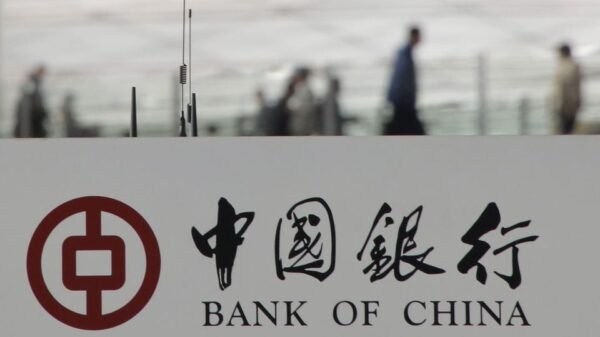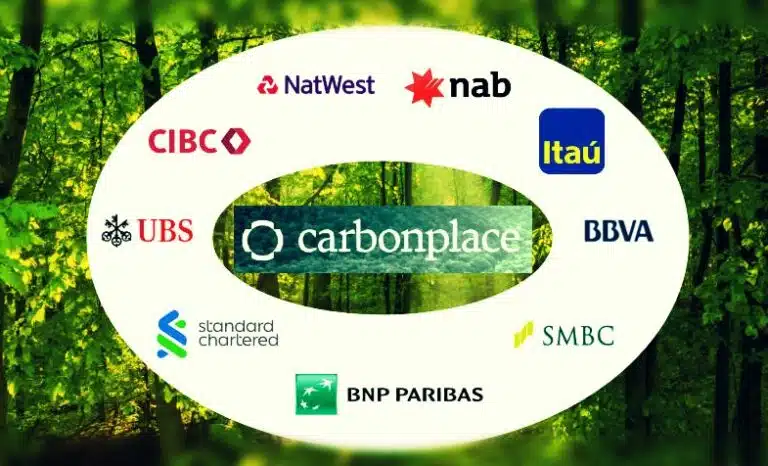Realizing the Potential of Carbon Credits Trading with Fintech
Fintech companies are leveraging technology to enter the carbon credits trading market. Learn how they’re using blockchain technology to provide greater security and accuracy in carbon credits trading and how it’s expected to grow.
KEY TAKEAWAYS
- Carbon credits are a form of trading that helps reduce the amount of greenhouse gas emissions.
- Fintech companies are leveraging technology to enter the carbon credit trading market.
- Fintech companies can provide a more efficient and transparent platform for carbon credit trading.
- Fintech companies are using blockchain technology to provide greater security and accuracy in trading.
- The carbon credit trading market is expected to grow with the help of fintech companies.
Climate change is one of the biggest challenges of the current time, and reducing greenhouse gas emissions is essential to limit its impact. One way to achieve this is through carbon credits trading, a mechanism that allows companies to offset their carbon emissions by supporting verified projects that reduce emissions elsewhere. But how does this work in practice, and how can technology help to make it more effective?
This is where fintech comes in. Fintech, short for financial technology, is a broad term that refers to innovative digital solutions that are transforming the financial industry. And when it comes to carbon credits trading, fintech is opening up new possibilities for making the process more efficient, transparent, and accessible for everyone involved. This article will explore the fascinating world of carbon credits trading with fintech and see how these technologies are making a real difference in the fight against climate change. Whether you’re a climate activist, a curious investor, or simply someone who wants to learn more about the intersection of technology and sustainability, this article is for you.
Carbon Credits Trading with Fintech
Overview of Carbon Credits Trading
Carbon credits trading is an important tool in the fight against climate change. Carbon credits are tradable certificates that represent the right to emit a certain amount of carbon dioxide (CO2) or other greenhouse gases. Companies that can reduce their emissions can sell their carbon credits to companies that need to increase their emissions, creating a market for emissions reductions. Carbon credits trading can also be used to finance projects that reduce emissions and help developing countries transition to cleaner energy sources.
Introduction to Fintech’s Role in Carbon Credits Trading
Fintech is playing a growing role in carbon credits trading. Fintech is the use of technology, such as software and algorithms, to facilitate financial transactions. In the context of carbon credits trading, it is used to create an efficient, transparent, and secure platform for buyers and sellers of carbon credits to interact and trade. Fintech can be used to create a marketplace where buyers and sellers can trade carbon credits in real-time, as well as facilitate the transfer of credits and payments between buyers and sellers.
Benefits of Using Fintech in Carbon Credits Trading
- Increased Efficiency and Transparency
Fintech can be used to increase the efficiency and transparency of carbon credits trading. The use of digital platforms and algorithms can significantly reduce the time and cost associated with trading carbon credits, making it easier and faster for buyers and sellers to interact and transact. Fintech also makes it easier to track and verify transactions, ensuring that all parties involved have access to the necessary information and can act by the rules of the market.
- Access to a Larger Pool of Participants
Fintech can also be used to create a larger and more varied pool of participants in carbon credits trading. By making the process of trading carbon credits more accessible and cost-effective, fintech can open up the market to a wider range of buyers and sellers, including individuals, companies, and governments. This can create a more competitive market, resulting in more efficient and fair pricing for carbon credits.
- Reduced Transaction Costs and Risks
Fintech can reduce the transaction costs and risks associated with carbon credits trading. By providing an automated and secure platform for trading, fintech can reduce the cost of intermediaries, such as brokers and banks, who are typically needed to facilitate trading. This can make the process of trading carbon credits more cost-effective and reduce the risk of fraud and other risks associated with manual trading. In addition, fintech can also be used to ensure that buyers and sellers comply with the rules of the market, reducing the risk of non-compliance.
Fintech Applications in Carbon Credits Trading
Financial technology, or fintech, is rapidly transforming the carbon credits trading landscape. From blockchain-based solutions to carbon credits trading platforms, fintech is enabling greater efficiency, transparency, and accessibility in this important area of sustainable development.
Blockchain-based Carbon Credits Trading
Blockchain technology is a distributed ledger system that allows for secure, transparent, and tamper-proof transactions. When it comes to carbon credits trading, blockchain can provide a more efficient and trustworthy way to track the lifecycle of carbon credits, from creation to retirement. Here are some of the ways blockchain is being applied to carbon credits trading:
Smart Contracts for Automated Transactions and Verification
Smart contracts are self-executing digital contracts that automatically trigger a specific action when certain conditions are met. In the context of carbon credits trading, smart contracts can automate the verification and transfer of carbon credits between parties, reducing the need for intermediaries and increasing the efficiency of the process.
Distributed Ledgers for Secure and Transparent Transactions
Distributed ledgers are a type of blockchain that allows multiple parties to access and verify the same information without the need for a central authority. This makes it ideal for carbon credits trading, where transparency and trust are crucial. By using distributed ledgers, carbon credits can be tracked and verified by multiple parties, ensuring the integrity of the process.
Carbon Credits Trading Platforms
Carbon credits trading platforms are digital marketplaces that connect buyers and sellers of carbon credits. These platforms provide a range of tools and services to make the carbon credits trading process more accessible, transparent, and efficient. Here are some of the features of carbon credits trading platforms:
Marketplaces for Buying and Selling Carbon Credits
Carbon credits trading platforms offer a marketplace where buyers and sellers can trade carbon credits, often with a range of different project types and geographic locations to choose from. By providing a centralized marketplace, these platforms increase liquidity and facilitate price discovery, making carbon credits more accessible to a wider range of buyers and sellers.
Tools for Carbon Footprint Monitoring and Management
Many carbon credits trading platforms also offer tools and services for carbon footprint monitoring and management. These tools help companies and individuals measure and track their carbon emissions, as well as identify opportunities for reducing their carbon footprint. By integrating these tools with carbon credits trading, companies can offset their emissions while also working to reduce them over time.
Overall, fintech is revolutionizing carbon credits trading by providing new tools and solutions for greater efficiency, transparency, and accessibility. By leveraging the power of blockchain and digital marketplaces, humans can create a more sustainable future while also supporting economic growth and development.
Challenges and Opportunities
Challenges Facing Fintech in Carbon Credits Trading
Carbon credits trading using fintech has become an increasingly popular way to reduce carbon emissions and help mitigate the effects of climate change. However, several challenges need to be addressed to ensure a successful and sustainable approach to carbon credits trading.
- Regulatory and Policy Barriers
One of the main challenges for fintech companies in carbon credits trading is the lack of a unified regulatory framework. Different countries have different policies, rules, and regulations which can make it difficult for fintech companies to operate in multiple countries. This can be especially challenging for smaller fintech companies that may not have the resources or expertise to navigate the different regulations.
- Lack of Standardization and Interoperability
Another challenge for fintech companies is the lack of standardization and interoperability across different trading platforms. Without a common set of standards and protocols, it can be difficult for fintech companies to create a unified market for carbon credits trading. This can lead to inefficiencies and higher transaction costs, which can negatively affect the overall market.
Opportunities for Fintech in Carbon Credits Trading
Despite the challenges, there are also opportunities for fintech companies to capitalize on the growing demand for carbon credits trading.
- New Business Models and Revenue Streams
Fintech companies can develop new business models and revenue streams by providing innovative solutions for carbon credits trading. For example, they can create platforms that allow users to buy and sell carbon credits, or create data analytics tools to help users better understand the market. These new business models can help fintech companies generate new sources of revenue and can help drive the growth of the carbon credits trading market.
- Improved Sustainability and Environmental Impact
Finally, fintech companies can help improve the sustainability and environmental impact of carbon credits trading. By creating platforms and tools that make carbon credit trading more efficient, fintech companies can help reduce emissions and make the market more sustainable. This can have a positive impact on the environment and help promote a more sustainable future.
Overall, fintech companies have the potential to play an important role in the carbon credits trading market. However, they must address the challenges of regulatory barriers, lack of standardization, and interoperability if they are to take full advantage of the opportunities available. By developing new business models and tools that make carbon credit trading more efficient and sustainable, fintech companies can help reduce emissions and improve the environmental impact of the market. Carbon credits trading with fintech is a promising avenue for companies to explore, and it could have a significant impact on the future of the planet.
Real-World Scenarios of Carbon Credits Trading with Fintech
The world is increasingly becoming aware of the need to reduce carbon emissions and find innovative ways to reduce their environmental impact. Fintech has become a powerful tool in this effort, enabling companies and individuals to make informed decisions when it comes to investing in carbon credits. This section will take a look at three real-world scenarios of how fintech can be used to facilitate carbon credits trading.
CarbonX: Using Blockchain to Reduce Carbon Emissions in China
CarbonX is a blockchain-enabled platform that is helping Chinese companies reduce their carbon emissions. The platform uses blockchain technology to track carbon credits, making it easier for companies to invest in carbon credits and track their emissions. CarbonX also provides an online marketplace for companies to buy and sell carbon credits, adding transparency and efficiency to the carbon trading process.
Veridium: Creating a Marketplace for Forest Carbon Credits
Veridium is a platform that is helping to create a marketplace for forest carbon credits. The platform uses advanced analytics, machine learning, and blockchain technology to create a secure and transparent system for trading forest carbon credits. Veridium also provides users with detailed information about the different types of forest carbon credits available, making it easier for companies to invest in the right credits for their needs.
Pachama: Using AI to Verify and Monitor Forest Carbon Projects
Pachama is an AI-driven platform that is focused on verifying and monitoring forest carbon projects. The platform uses AI to analyze satellite imagery of forests, enabling companies to accurately track the progress of their carbon projects and verify their carbon credits. Pachama also provides users with data-driven insights and recommendations to help them optimize their carbon investments and reduce their carbon emissions.
Fintech is playing an increasingly important role in carbon credits trading. Companies are now leveraging the power of blockchain, AI, and analytics to create secure and transparent systems for tracking and trading carbon credits. This is helping to make the process of investing in carbon credits more efficient and cost-effective, enabling companies to reduce their carbon emissions and make a positive impact on the environment.
Final Thoughts
Carbon credits trading is an essential strategy in the fight against climate change. By using fintech applications such as blockchain and distributed ledgers, carbon credits trading can become more efficient, secure, and transparent. Fintech platforms are also crucial in providing marketplaces for buying and selling carbon credits, as well as tools for carbon footprint monitoring and management. As more businesses and individuals become aware of the need to reduce their carbon footprint, the demand for carbon credits is expected to increase. Fintech offers an opportunity to facilitate the trading of carbon credits, ultimately leading to a cleaner and more sustainable world. Carbon credits trading with fintech is an exciting development that has the potential to make a real impact on the environment, and everyone can play a part in supporting this trend toward a greener future.
































































Comment Template